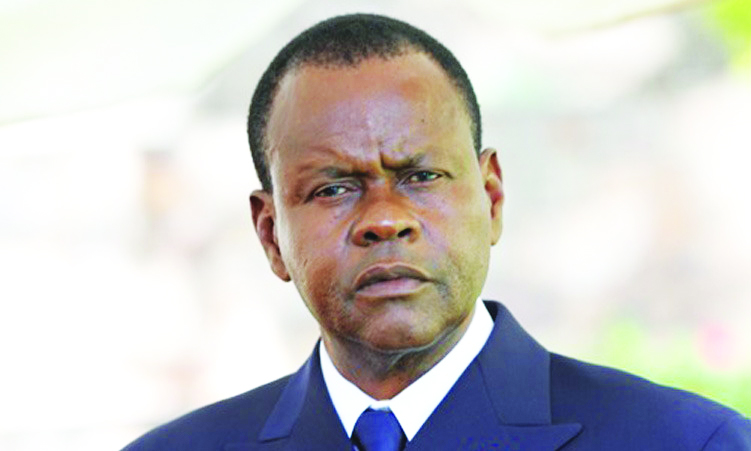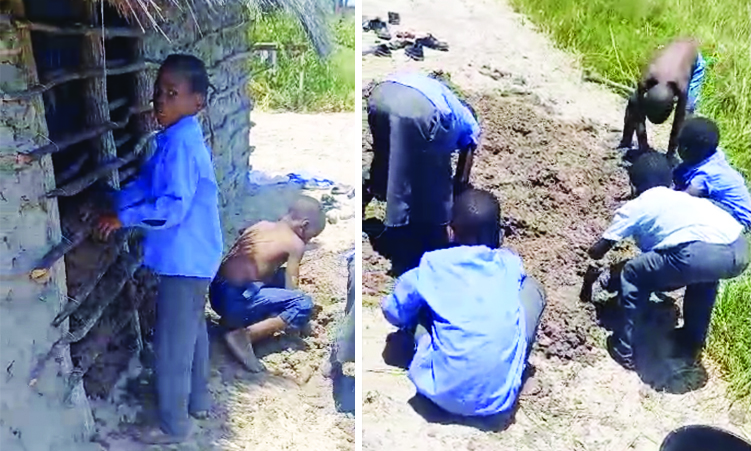A few years ago, Cambodia’s ruler launched the most ruthless crackdown of his career to annihilate his opponents.
Facing popular opposition, Hun Sen used the courts to dismantle the political party threatening his rule. Ranks of MPs were thrown out of parliament while the leaders were arrested.
Having crushed his rivals, he cruised to victory six months later at the 2018 election, winning all 125 seats in Cambodia’s parliament.
For voters heading to the polls again this Sunday – it’s déjà vu with their only alternative banned.
“It’s a rigged election because there are no real strong opposition parties,” one voter, an aid worker in Phnom Penh, told the BBC.
Hun Sen, now 70, has ruled Cambodia since 1985. A former Khmer Rouge official who defected to Vietnam before the regime’s fall, his survivalist grip on power has led to his boast that he is the world’s longest-serving prime minister.
For nearly 40 years, he has consolidated power through a network of interests, including the military, police and intelligence groups.
He has seen off opponents over the years by co-opting, jailing, exiling or otherwise side-lining them.
The UN set Cambodia up to be a democracy in the 1990s after the horrors of the Khmer Rouge regime. But political analysts say it’s now an authoritarian one-party state, and Hun Sen is by most standards, a dictator.
“I feel hopeless for the current situation,” the voter in Phnom Penh said. A decade ago in his early 20s, he had voted for the opposition, impassioned by thoughts of change.
But Hun Sen crushed that movement. These days there is fear around criticising the government at election time.
Cambodia remains one of the poorest countries in Asia – and locals are struggling with fuel prices and stagnant wages. Corruption is endemic, public accountability weak. Land grabs and rising crime make life even more intolerable.
But everyone knows that in Sunday’s vote, the Cambodian People’s Party (CPP) will win again.
“This will lead to no representative voices in parliament that can speak about the problems of the people, who can protect the interests of the people,” the voter said.
“That’s why the people have remained silent this time around.”
A sham vote
Hun Sen has flagged he will hand over to his son some time after this election. When he’ll let go, no one knows, but he has become increasingly erratic, repressive and vindictive as his era nears an end, experts say.
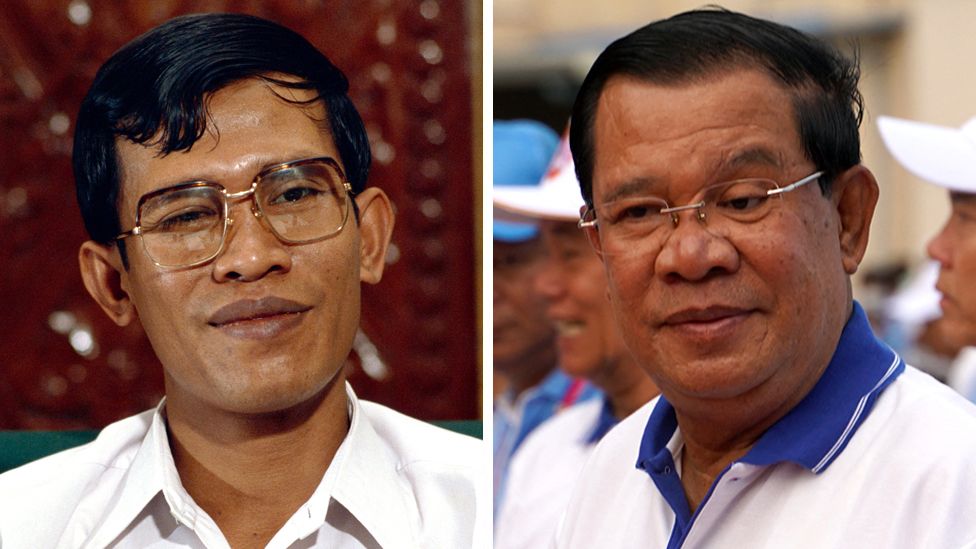
For this year’s election, he strung the only credible opposition along for months before banning them.
The Candlelight Party emerged last year from the ashes of the former opposition. Despite widespread intimidation and evidence of tampering, they won 22% of the vote at local commune elections last year.
That to Hun Sen was intolerable. So he “suffocated Candlelight” well in advance of them becoming a significant threat, says Lee Morgenbesser, an expert on dictators at Australia’s Griffith University who has monitored Hun Sen for years.
After threatening Candlelight leaders with lawsuits in February, Hun Sen banned the party in May – getting the electoral office to disqualify the party on a technicality.
There are 17 other parties on the ballot but they are so small or aligned with the ruling party as to be inconsequential.
“We put our heart and resources into organising and running our campaign, we were fielding candidates in every seat,” a Candlelight representative told the BBC this week.
“To be disqualified in the final stretch due to an administrative requirement that had never existed before – he just changed the rules in the middle of the game.”
The BBC has spoken with a few Candlelight leaders this year. But it has become increasingly dangerous for them – with many arrested in recent weeks. Two leaders were captured in Thailand last week by Thai police, as they tried to flee to the UN’s refugee office in Bangkok.
A decade of democratic decline
Cambodia’s elections – despite decades of international help – have always been marred by violence and irregularities.
But until the 2018 election, they were still considered competitive. Opposition parties could view the ballot box as offering a genuine path to power even if that path ran steeply uphill, writes Associate Prof Morgenbesser.
However in late 2017 Hun Sen grew alarmed by a strengthened and united opposition. An alliance known as the Cambodian National Rescue Party (CNRP), led by two veterans Sam Rainsy and Kem Sokha, shocked him when they captured 44% of the national vote in 2013.
At one point that night, the CNRP looked to have even pulled ahead of the CPP – prompting the government to pull the live feed of the vote count on televisions all across the country.
Cambodians had felt regime change within their grasp – with tens of thousands turning out to rallies that year.
“The political energy, triumphant and wild, was palpable on the streets, especially among youth,” says analyst Astrid Noren Nillson, who was in Phnom Penh in 2013.
The opposition led protests for months afterwards, contesting Hun Sen’s victory. Facing the biggest challenge to his power to date, he gave up some powers and negotiated his way to a truce.
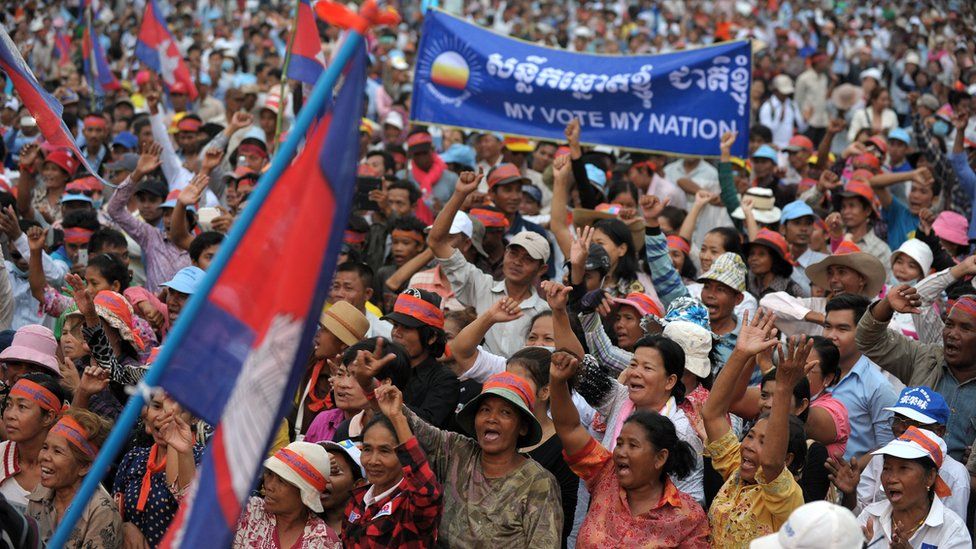
But in 2017, when the CNRP challenged again at local elections, he didn’t hold back.
He used the CPP-controlled parliament to pass a law to dissolve any party on security grounds. Then he used his new powers to get the Supreme Court to disband the CNRP.
About 100 CNRP members were prosecuted, prompting several senior party figures to flee into exile.
Hun Sen also went after other democratic institutions – forcing newspapers like The Cambodia Daily to shut down and expelling rights groups and US Peace Corps volunteers. The international community was shocked by the crackdown, “whose scope and severity was without precedent” describes Associate Prof Morgenbesser.
The US launched sanctions in 2019 against senior Cambodia officials, and the EU trade sanctions in 2020, for alleged abuses. But Hun Sen remained indifferent, having retained China’s support.
There is a clear dividing line in Cambodia before 2017-18, when politics was competitive, and nowadays, says Dr Noren Nillson, who is in Phnom Penh again this week.
One Western diplomat, who didn’t want to be named, told the BBC: “Everyone is pretty depressed, dispirited. Pretty much from the first of January – as soon as he handed over the Asean chairmanship – he leapt into gear with this new wave of crackdowns.”
First, Hun Sen went after the Candlelight leadership, threatening criminal charges like “incitement”, and seizing the home of a party elder accused of insulting his party.
In March, the courts jailed former CNRP leader Kem Sokha for 27 years on what the US said was a “fabricated conspiracy”. The punitive sentence was condemned by several Western embassies and the UN human rights commissioner.
Hun Sen also shut down the remaining free press outlet Voice of Democracy, and threatened de-registration of NGOs.
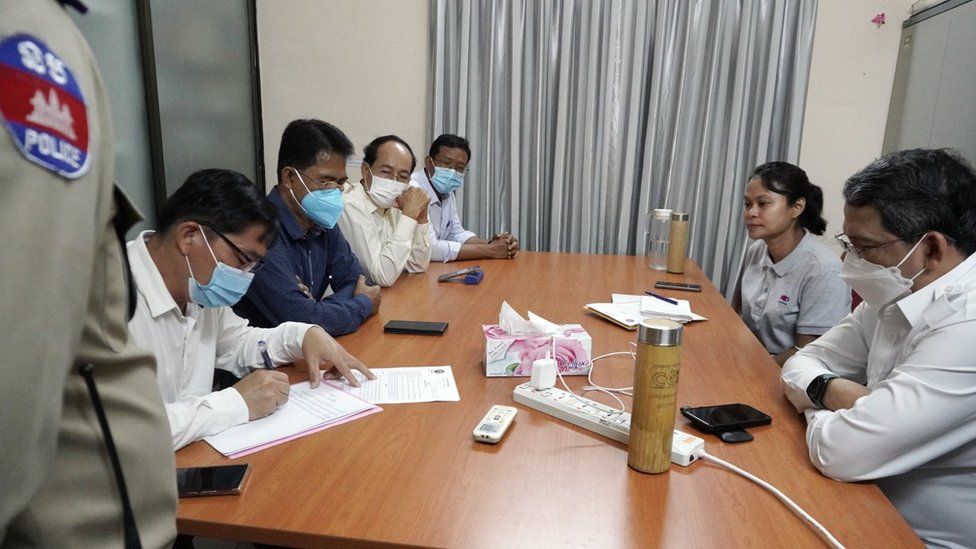
And throughout, he has kept up his intimidation and harassment campaign.
Analysts say Hun Sen’s playbook is well known. He targets people with bribes and payoffs, promising government jobs and land. There have been a wave of defections this year, from not just Candlelight, but trade unions and farmer groups.
When he doesn’t succeed in co-opting, he aims to crush them, says Associate Prof Morgenbesser.
Hun Sen will issue threats in his public speeches, warning opponents they will be beaten up if they incur his wrath. He regularly drops the names of the people he’s displeased with in wildly lengthy statements on social media.
In March and April, Candlelight members reported public assaults by masked men. This week, Human Rights Watch reported the government had intensified harassment and arbitrary arrests of party members.
In villages, CPP agents have gone around buying votes and threatening voters who can’t be bought. “They’ve gone door to door,” one person in Phnom Penh told the BBC.
Analysts have also noted the sweep of electoral laws rushed through in recent weeks. With Candlelight now out of the vote, Hun Sen is obsessed with deflecting criticism of the poll that could be shown through low voter turn-out or high levels of spoiled ballots.
It’s now illegal to advocate for a boycott, and spoiling a ballot risks a 20 million riel ($,5000; £3,800) fine. To stand for future office in Cambodia, you must also vote in this year’s poll or be ruled out of future races.
Post Hun Sen?
Initially Candlelight had been torn about what to do after it was disqualified in May. Some leaders called for supporters to take to the streets. From exile Sam Rainsy called for an election boycott.
The messaging was confused from what is these days a diminished, rag-tag opposition. “To use a sporting analogy, we’re all third or fourth-string players who are left now,” an insider told the BBC.
Candlelight ultimately chose to bunker down to keep its flame alive.
“We will try and survive the next two or three months… after that we will rebuild again,” he said.
Like everyone else, Candlelight are looking to a time when Hun Sen will be gone.
“And by gone, we mean dead,” says the Western diplomat.
“We are doing what we can to support what there is of the civic space that is left, but there’s a view where everyone’s just sort of looking towards a post-Hun Sen Cambodia.”
There is some hope things could improve when Hun Manet, his Western-educated son who commands the army, takes over.
“I don’t think he’s the great democratic saviour of Cambodia, but I think he is reform-minded and will want to improve relations with the West,” the diplomat said.
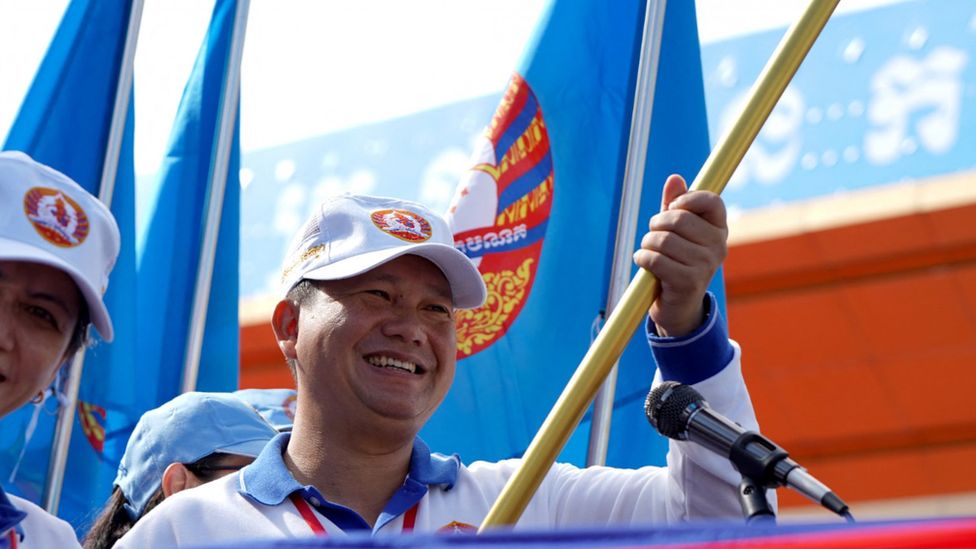
Others are frank about their fears over dynastic rule. “We’re a democracy,” one voter told the BBC. “From father to son – that’s not very democratic, is it?”
Experts also warn against placing false hope in the sons of dictators, noting how other family regimes have played out. The apple rarely falls far from the tree, Associate Prof Morgenbesser says.
So is there still hope for Cambodian democracy?
He says there’s always hope – inside people.
“What the Cambodian people think about Hun Sen or the ruling party is not being expressed publicly any more. So what they think in private, they don’t say in public.”
Stay informed with The Namibian – your source for credible journalism. Get in-depth reporting and opinions for
only N$85 a month. Invest in journalism, invest in democracy –
Subscribe Now!







